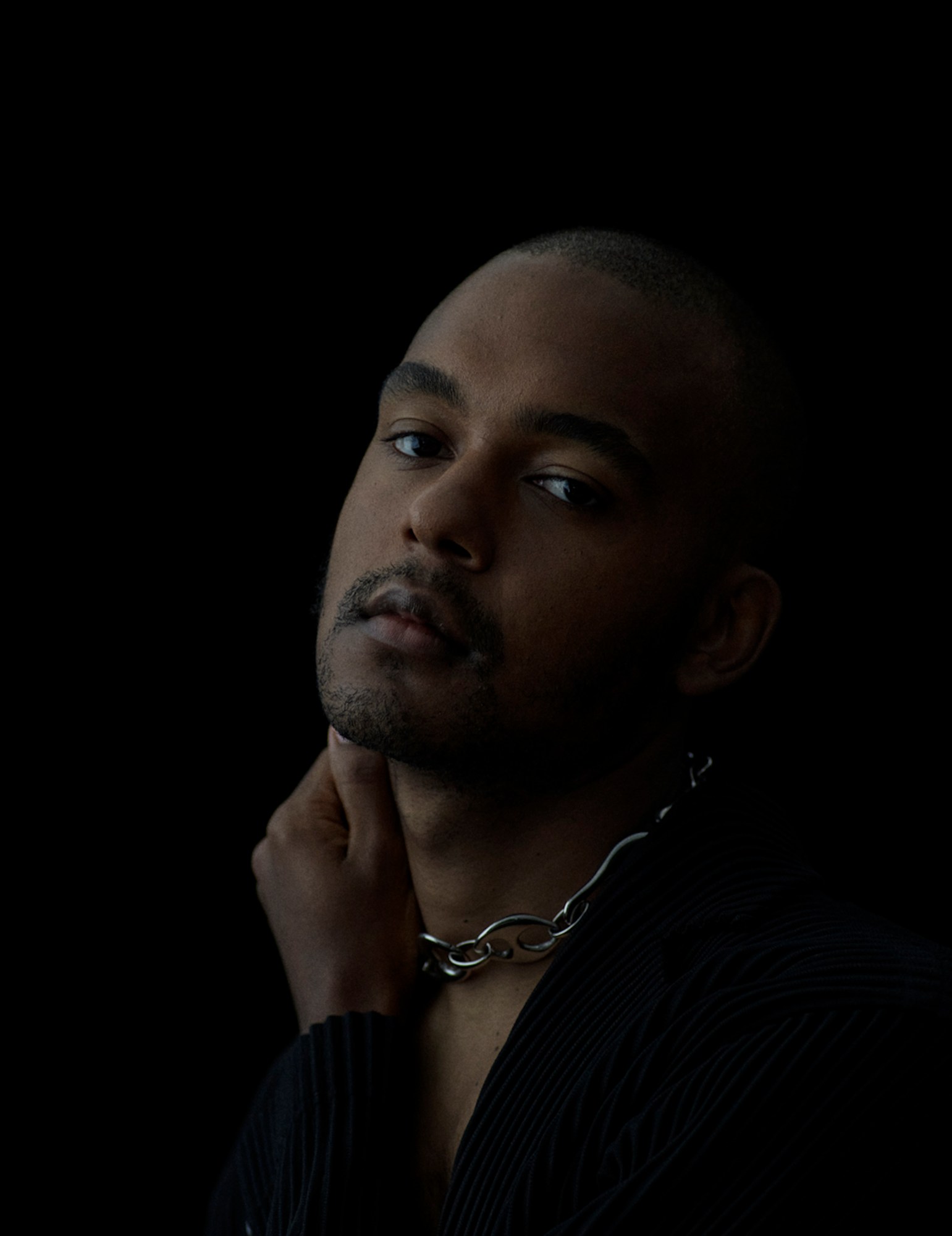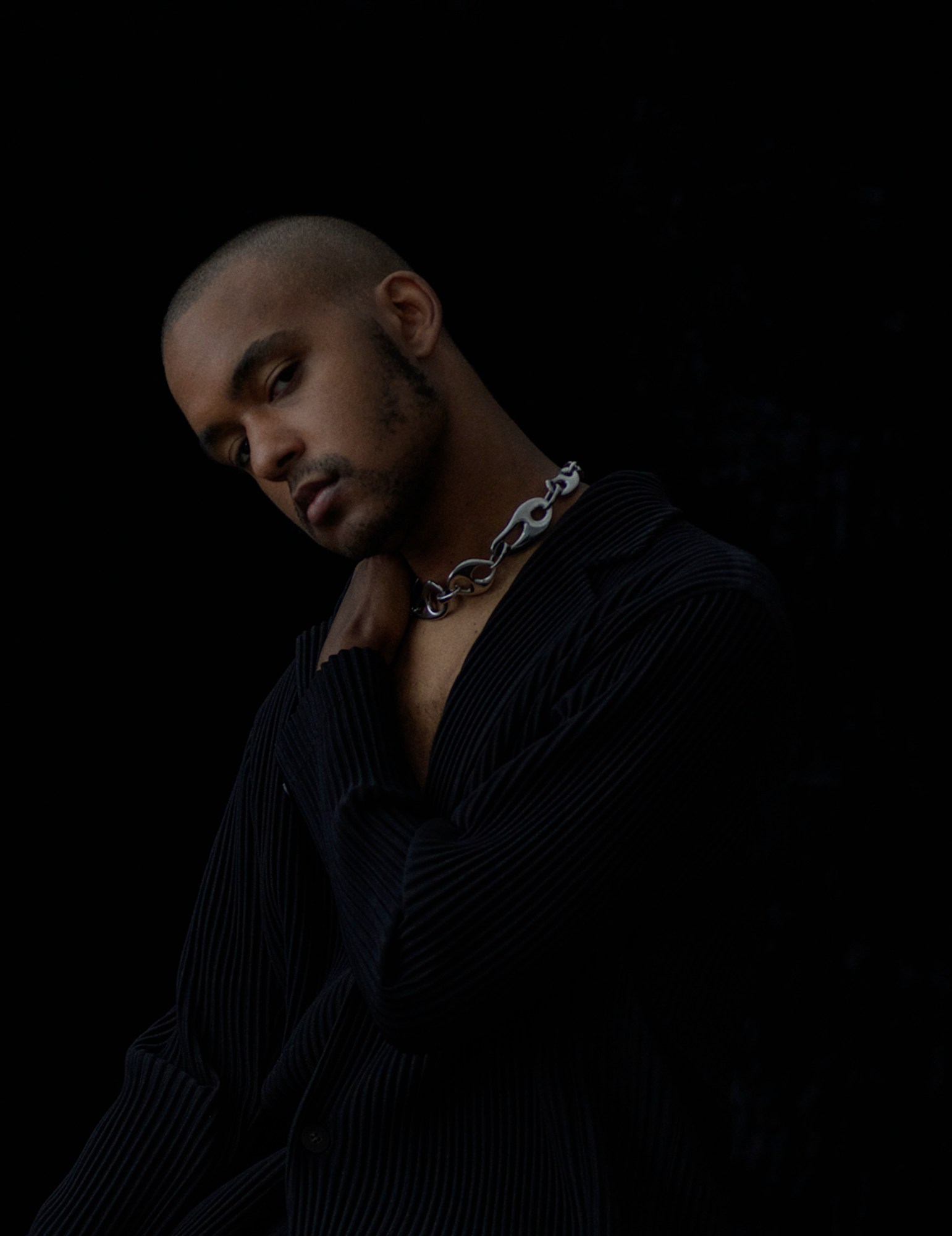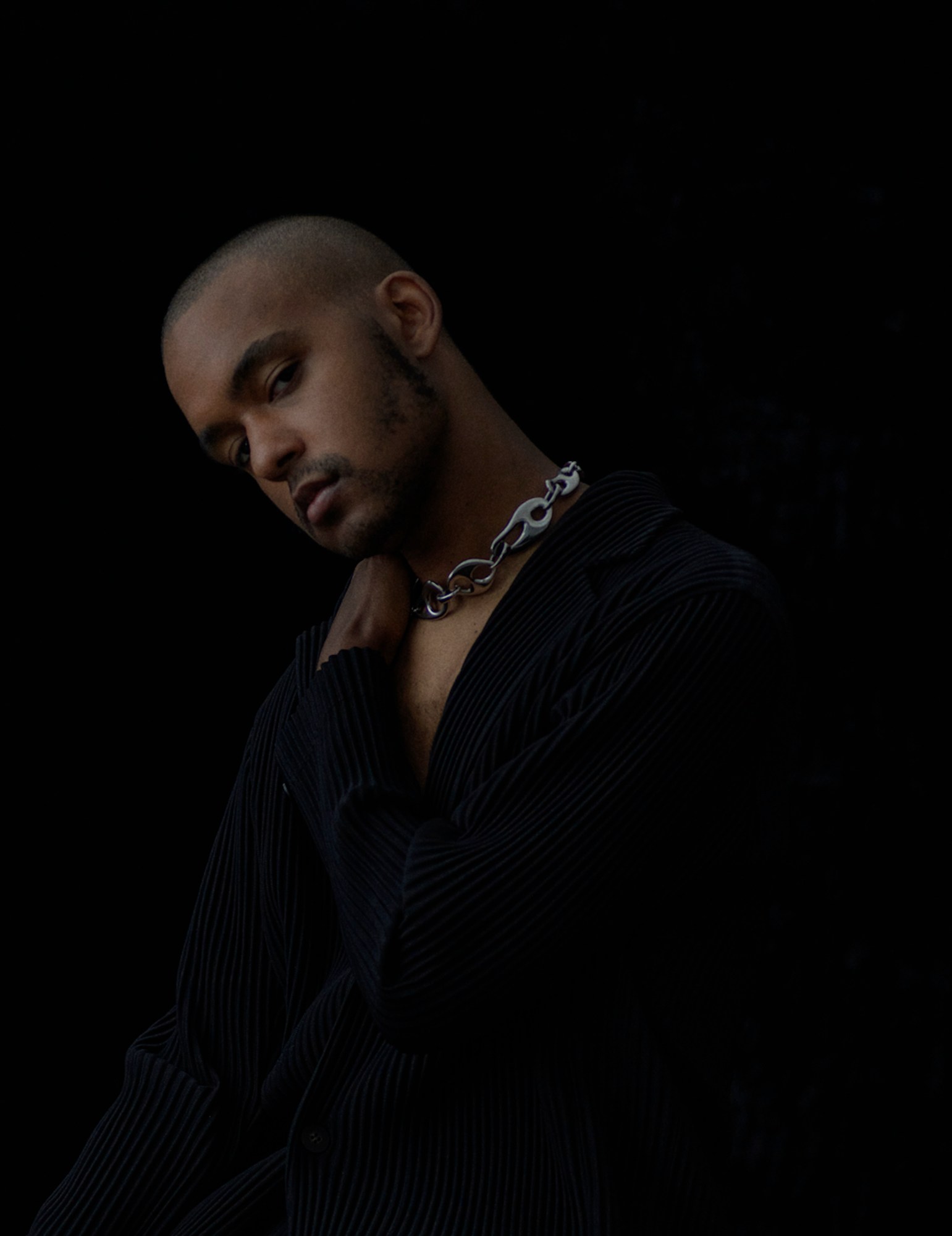This story originally appeared in i-D’s The Darker Issue, no. 365, Winter 2021. Order your copy here.
Jasper Marsalis is an artist and musician based in Los Angeles. Under the moniker Slauson Malone, Marsalis released the album Vergangenheitsbewältigung (Crater Speak) in 2020.
Hey! Can you introduce yourself?
Hello. My name is Jasper Marsalis. I’m an artist and musician.
Where are you right now?
I live in Los Angeles and right now I’m at Andrew Lappin’s music studio. He’s a producer for L’Rain’s record.
So you’re in music-making mode right now?
I try not to look at it like that. I try to think of art and music as one and the same because it can get a bit wacky if I try and keep them separate.
Wacky, how?
It takes too much work to have different modes of creating. I’ve tried to separate them but it’s led me into working on projects I feel disingenuous about because I feel I’m obliged to do so. Like oh, this is my music, so it’s time to go be a musician. This is my art, time to be an artist. I’m trying to move away from that.

When did you start shifting how you thought about it?
When I started to have an audience I really started rethinking and being critical of these two separate worlds.
Just thinking about where you’re at with your practice, and how you move through the world doing the many things that you do. How are you feeling about the past year and a half? What has changed? Has anything surprised you?
I’ve become way less invested in the power of representation. As a painter, or at least someone who’s deeply invested in painting, your eyes are the thing you trust the most. They’re the most treacherous organ. I’ve begun to distrust my eyes as a tool of judgment. So that’s been pretty shocking for me.
What do you mean by that?
I feel like I’m about to spiral into several different worlds. The thing that ties together my art and music are eyes, and this desire for things to be visible or understood in a certain way. There’s so much miscommunication that happens when eyes are the dominant form of understanding something. In my practice I’ve just been more drawn to this idea that there’s some invisible thread that connects everything together.
Do you think it’s something more existential and broader, something we can all tap into, or very personal?
It’s both. Part of it is autobiographical. The act of looking at something or being looked at is what I make. I make paintings about people looking at people and then people look at the paintings. When I’m performing on a stage, people are looking at me, and I want them to know that they’re looking at me. There’s so much to be undone in that world, whether it’s gender or race or class structures. These are all extremely representational things. I have my qualms with that. That’s why the gaze is so saturated, because it’s the site of so much violence.

So much of your art and music is about performance. It’s interesting that you’re talking about eyes, because eyes often suggest clarity. A lot of your music is muddled. You have to search for it. It feels like you’re trying to undo performance.
I just have a lot of distrust in the languages that we have to express ourselves in. I think it’s way more fundamental than making a “good” or “bad” painting. The metrics of what a “good” painting or a “good” album are, are really problematic. At one point I craved a sense of clarity from art making, but I think the beauty of it is that things don’t have to make sense. I can make something that can fail in my art or music practice. I can’t do that in my daily life. That’s a problem.
So what’s the difference? How do you navigate that problem?
It’s a really hard space to be in, because it makes me really judgmental of things that do work or have a sense of clarity and direction. Because, at least from my lived experience, it is so open-ended, confusing and gray. I think that’s what led me to this artistic space.
What’s exciting you right now?
Thinking of performance as the umbrella for everything that I’m working on is really giving me a lot of momentum. We all attach these intellectual or emotional reasons as to why we do something, but it’s really still performance. Performance has been giving me a lot of fuel. This world has way too much baggage but the idea of social death has been really exciting me. Performing my own social death as a way to get freedom.
Tell me more about social death. You saying that reminded me of AJ’s essay My Black Death.
It’s all connected. We latch onto certain definitive aspects of our personality, agenda or prescribed race, or something that gives our life meaning. I’ve developed a deep distrust for comfortability. I feel if I can exorcise some of these things I once felt comfortable in, I can come up with a new, less violent way of existing in the world.
What does that mean to you, actually living in a world that is less violent?
Wow, that’s heavy. I don’t know. I do know, but I don’t know. Part of it is, I literally don’t know and I don’t have a theory. Most answers make me uncomfortable, so embracing a degree of uncertainty is the driving force. Blind certainty is a source of a lot of violence in the world.
I know that you’re about to go on tour next month. Is this your first major tour in a while?
This is my first time touring in about two years. It’s both terrifying and exciting. People’s expectations are wildly different now, in a healthy way. People are excited to see something.
Do you feel that’s changing your approach or perspective?
Absolutely. There’s been this period of anti-spectacle with people being inside, it doesn’t really matter if they like it or not, it’s something different from what they’re used to. That’s an exciting type of audience because we can perform together as opposed to “I’m performing, y’all are here to watch me.” There’s more participation. It’s been really fun and I’m excited to keep exploring it.
How was the first show back?
I’m a pretty secular person, but it was godly. It was really such a spiritual experience.
What are you looking forward to?
What am I looking forward to? I’m looking forward to going to more shows and seeing what people have been working on. I’m excited to talk to people. That’s something I’ve missed so much. Just hearing someone’s perspective on what they’re doing or what they saw or heard, smelled, touched or whatever.
Credits:
Photography Arthur Jafa
Fashion director Carlos Nazario
Hair Fesa Nu the Hair Poet
Make-up Alana Wright using Shiseido at The Canvas Agency
Photography assistance Gary Axness and Cris Ian Garcia
Digital imaging technician Chris Nowling
Fashion assistance Raymond Gee
Production Mason Marchand and Judah Lawson
Casting director Samuel Ellis Scheinman for DMCASTING
